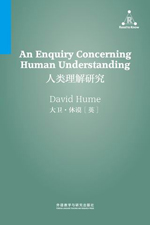Review
A Study of Human Understanding is a philosophical work published by David Hume in 1748, which aims to explore all aspects of human cognitive activity. Through the analysis of impressions and ideas, the book raises doubts about causality and induction, and attempts to establish an empirical basis.
In the book, Hume elaborated on two basic concepts in the process of human cognition: impression and idea. All knowledge, he argued, stems from these two forms of perception. Impressions are experiences gained directly from the senses, while ideas are reflections or copies of those impressions. He further pointed out that the inferences of facts are all based on causation, and this relationship is only based on the habit of experience.
Hume's skeptical thought runs through the book. He believes that human cognition is limited and cannot fully grasp the truth. Through the analysis of religion, atheism and absolute skepticism, he put forward the philosophical thought of "mild skepticism", which holds that a reasonable reasoner should be cautious in all investigations and assertions.
In addition, Hume also questioned the rationality of natural science, and believed that pure empiricism could not form the basis of science. He believed that induction was an independent logical principle that could not be deduced from experience or other logical principles, and that without this principle there would be no science.
Research on Human Understanding is not only a profound work on the theory of human cognition, but also an important embodiment of Hume's philosophical thought. Through a large number of arguments and examples, Hume demonstrated his unique views on the problems of impression, idea, knowledge and causality, especially the discussion of causality was thoroughly elaborated. The book had a profound influence on later philosophy and science, becoming a classic of empirical philosophy.



 京公网安备 11010802032529号
京公网安备 11010802032529号